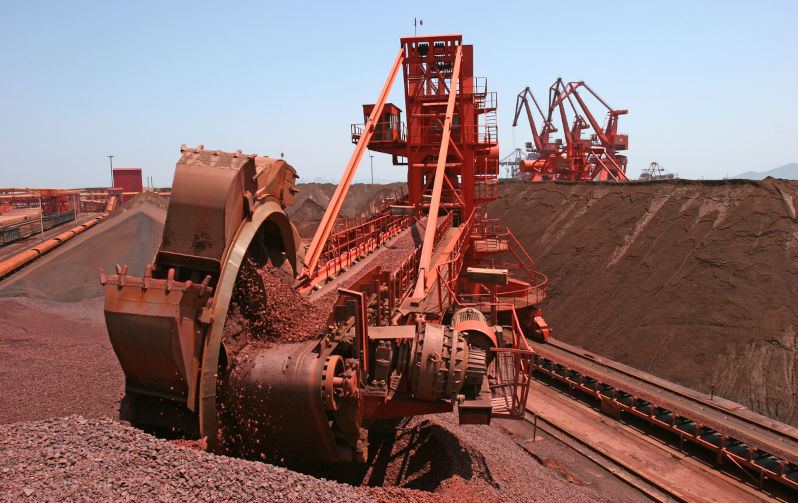Urgent case for statecraft on green iron and steel to secure Australia's future prosperity
November 16, 2024
A handful of years ago, South Australia’s Whyalla steelworks, owned by British industrialist Sanjeeev Gupta, was touted as the potential birthplace of an Australian green iron and steel industry. Today, the mounting crisis at Whyalla brings sharply into focus both the risks and opportunities of this pivotal moment in Australia’s energy transition, and the transition of the global steelmaking industry more broadly.
While Gupta’s operations now appear unsustainable, Whyalla has enormous potential as an Australian green iron and steel hub in a world undergoing a nascent but momentous shift to a future of zero-emissions steelmaking.
But if we want to address the enormous economic, energy, and environmental security challenges facing our nation, and reap the potentially nation-building rewards associated with decarbonising the iron and steel industries in Australia and globally, we must start thinking beyond individual projects and consider the bigger picture.
We must start by acknowledging that Australia stands at a nation-defining crossroads with our country’s security at stake.
In the next decade, we will see global demand for Australia’s two largest exports – iron ore and coal – contract as Northeast Asia continues its ambitious clean energy shift, including the decarbonisation and restructure of its iron and steel supply chains, and as Europe’s carbon border adjustment mechanism kicks in. This threatens our economic security.
At the same time, we will see continued volatility in global energy markets, especially those for coal, oil and gas. This threatens our energy security.
And we will see the impacts of unchecked climate change intensify, creating chaos in our weather and fragile ecosystems. This threatens our environmental and social security, risking lives and livelihoods.
We can choose to ignore these challenges and continue on our business-as-usual, fossil-fuelled, zero-value-adding iron ore export trajectory. Or we can choose to confront these challenges head-on and to not just survive, but thrive in the global clean economy-in-the-making while reaping the large and connected economic, national security-enhancing rewards on offer.
This requires more than a project-by-project approach. It demands a comprehensive national security-enhancing economic agenda centred on the embrace of an ambitious green iron and steel national development strategy – in short, green metal statecraft.
This should include measures such as changes to economic policy – on both the demand and supply side – to induce and enable private sector investment, combined with complementary changes to foreign policy to facilitate the sharing of capital, technology, and expertise required, and social policy to ensure all Australians benefit from the riches on offer, not least First Nations custodians.
A comprehensive account of these reforms is set out in a new report by Climate Energy Finance. Its recommendations include a national Green Iron and Steel Strategy with measurable targets, and the establishment of a trilateral Clean Commodities Trading Company with Japan and South Korea to provide the urgent demand required to spur investment, while bolstering our regional economic and strategic partnerships and delivering real value to Australian taxpayers.
It also includes a $20bn Future Fund mandate for renewables-powered metals processing, an Australasian Green Iron Corporation JV with our trade partners, a DFAT/ Austrade mandate to build collaboration on an Asian Carbon Border Adjustment Mechanism, creating a premium price signal for green iron, and a time-limited production tax credit for green iron to provide a diversified set of policy support measures.
The report quantifies the national-building scale of our opportunity – a doubling of our current iron ore export revenues to some $250bn annually if we act – and the downside risk, potential halving of our $138bn revenues from unprocessed iron, our number one export commodity, if we do not.
By embracing an ambitious green metal statecraft agenda, Australia can create the new technology-intensive, job-creating, high-value, export-oriented industries of the future, boosting economic security. We can produce abundant and cheap energy, leveraging our world-class wind and solar resources, boosting energy security. We can deepen and extend our economic collaborations with some of our most important geostrategic partners, creating a safer and more prosperous region in an increasingly tumultuous world.
We can help decarbonise some of the dirtiest industries in the world – including steel, which contributes 6.7% of global emissions, or 3.6bn tonnes annually – boosting environmental security.
The changes must start with the policymaking mindset. Australia’s political and policy leaders must start thinking about the development of a local clean metals industry as an unmissable opportunity to address our nation’s pressing economic, energy, and environmental security challenges, and to bolster our geostrategic positioning. And they need to embrace the idea of a more ambitious and strategic role for the government in bringing this new industry to life – just as other governments around the world are doing.
This change in mindset will help drive and sustain the policy and regulatory changes required. This requires political will from across the political spectrum, and a high degree of discipline and oversight to ensure that the precious dollars invested deliver true value for all Australians.
The creation of a green metals industry in Australia is not a “nice to have”. It is absolutely essential to our national security, comprehensively conceived.
